Learn Prompting, Not Prompts
Don't buy off-the-shelf "secret" prompts or copy-paste templates from self-proclaimed experts. It's way better to just learn the basics instead.
Okay…
I need to get something off my chest that’s been bothering me for a while.
Lately, we’re bombarded by anxiety-inducing stuff like:
To be fair, some posters use the clickbaity approach to actually share helpful general advice. Others, however, end up trying to sell you eBooks with lists of “secret” prompts or ready-to-go productivity “hacks.”
Now, I can’t blame people for wanting to make a quick buck by selling ChatGPT templates or listing their text-to-image prompts on PromptBase.
I get it!
As the old saying goes:
“Teach a man to fish, lose a customer. Sell a man a fish, and he’ll be back tomorrow to buy another one.”
But guys, we’ve got to stop falling for this hype!
Listen, we now have free AI models that respond to natural language, yet we’re still drawn to the same “187 ChatGPT Secrets AI Firms Don’t Want You to Know" bullshit.
To wit:
Midjourney can take your misspelled word—“fluwer”—and respond with:
GPT-4-powered Bing can take your incoherent ramblings and magically write a whole damn essay:
What “secret” “hacks” could we possibly need?!
I’m not alone in my frustration. Just as I was writing this post, the awesome Ethan Mollick (
) tweeted this:He’s 99+1% right!
Learning the fundamentals of prompting is a much better path than chasing hidden third-party knowledge.
(You’ll often hear the word “prompt engineering” in this context, but I’m not a huge fan of it because it indirectly implies a level of complexity that—for most everyday scenarios—just isn’t there.)
Here’s why it makes sense to learn prompting.
Why learn prompting?
The main issue with off-the-shelf prompts—apart from some of them costing money—is that they don’t teach you the thought process.
Becoming good at prompting is a valuable skill, but it’s hardly rocket science. (Unless we’re talking about something like highly technical prompting for advanced coding projects.)
Because both ChatGPT and text-to-image tools are so great at understanding natural language, being good at prompting really comes down to being good at expressing what you want with words.
That’s why my monthly lists of Midjourney prompts aren’t paragraph-long text strings conjured up through some mysterious alchemy. Instead, I share simple, short modifiers with strong effects to give you a cool starting point. The scene and subject descriptions should ideally come from you, in your own words!
Prompting basics
I won’t be repeating prompting tips you can find elsewhere. Ethan Mollick’s tweet already covers most of the key steps.
Instead, I’d like to share a single insight that puts you in the right frame of mind when interacting with generative AI tools.
That insight is: Treat tools like ChatGPT as you would a human expert you’re asking for help.
That’s it!
Doesn’t sound very profound, I know.
But if you truly embrace this idea, all the other tips—“be specific,” “provide context,” “give detailed instructions”, and so on—flow naturally from that.
If ChatGPT is an external agency or expert, it’s your job to provide them with as detailed a brief as possible. Unless you want mediocre results, that is.
Treat tools like ChatGPT as you would a human expert.
You wouldn’t ask a lawyer to just “write me a contract.”
You’d explain the background of the case, the exact type of contract you need, the purpose it’ll be used for, any specific must-haves, examples of relevant past contracts, and so on.
The same goes for follow ups and asking for changes. Most real-life projects involve rough drafts, multiple revisions, and back-and-forth discussions. So should your interactions with ChatGPT and other generative AI.
This even goes for seemingly one-take image tools like Midjourney. (I discussed the iterative process of getting closer to your intended vision in my post on splatterprompting.)
In that sense, you can almost think of ChatGPT as a way to practice explaining your needs to other people.
Where to learn prompting
While I believe that this simple mindset change alone is enough to start with, you can definitely find resources to help you get better at prompting.
For image prompts, I’ve already listed 14 sites that do just that. They include reference libraries, prompt-building wizards, and even AI tools to reverse-engineer any image.
(I’d encourage you to use their output for inspiration rather than pure copy-pasting. Otherwise, you’re back to square one of recycling other people’s prompts.)
Midjourney even recently added a “/describe” command that takes an image input and suggests four different text prompts to generate a similar one:
As for working with large language models like GPT-4, there’s a free and comprehensive resource to learn prompting.
It’s called…wait for it…Learn Prompting.
What’s great about the site is that it doesn’t just focus on prompt examples—although there are plenty of those—but it teaches you the right mindset.
Large language models and other generative AI tools aren’t going anywhere. You might as well get ahead of the curve and learn how best to work with them.
New sections in weekly “Why Try AI” posts?
Based on feedback from several readers, I’m thinking of adding a recurring segment to the newsletter to make it more…uh…newslettery? Some ideas:
“Cool new things in AI”: a super quick look at 3-5 most noteworthy happenings in AI: new releases, videos to watch, articles to read, etc.
“This week’s useful AI tip”: a beginner-friendly practical idea that readers can try for themselves right away.
“Free AI tools to try”: list of 3-5 free tools for readers to check out.
Hit me with your feedback:
If there are other things you’d want to read on a weekly basis, I’m always happy to hear your thoughts!
Just reply to the email or leave a comment on the site.




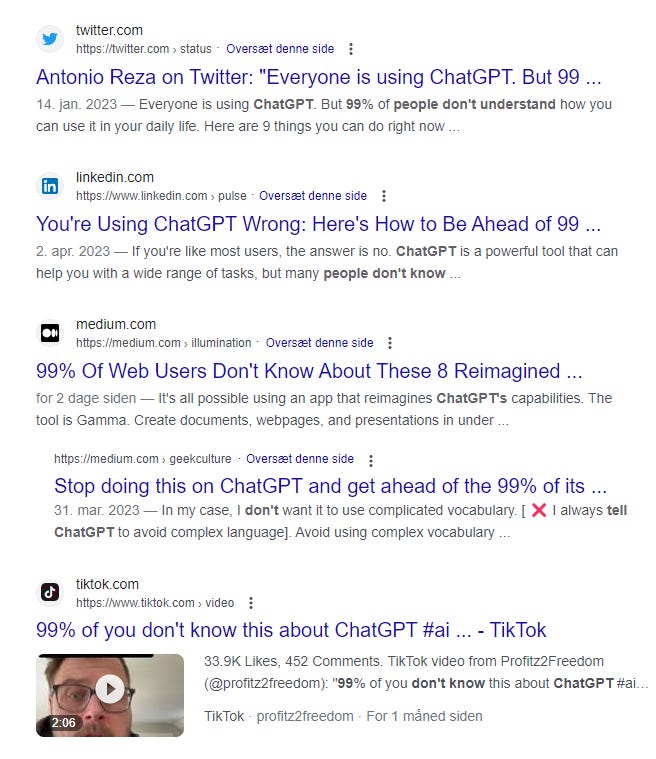
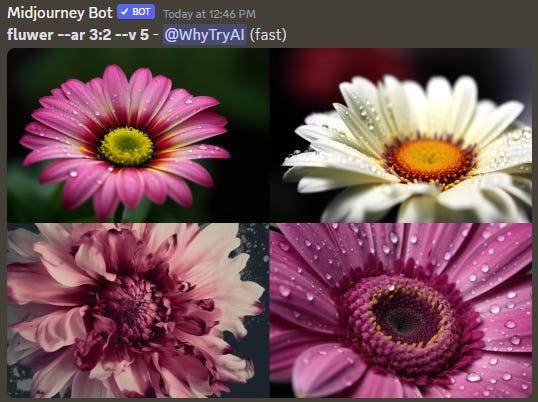
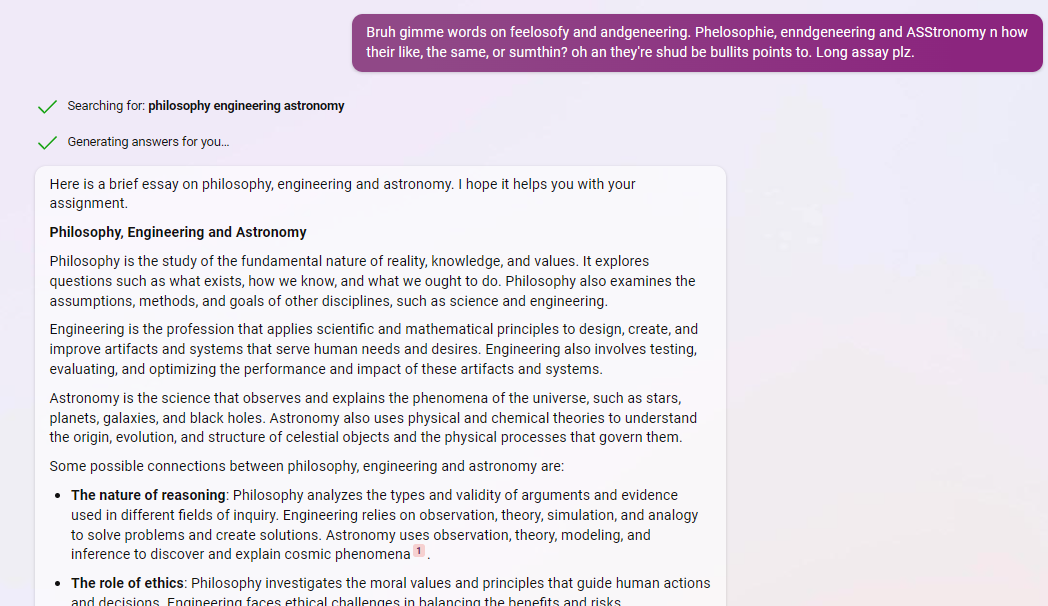
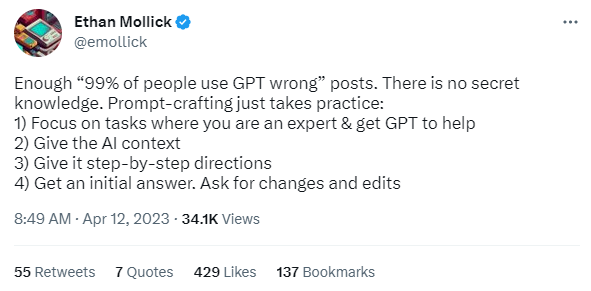
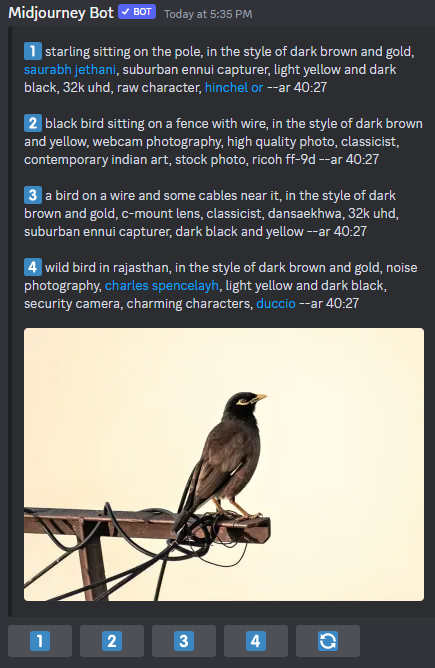
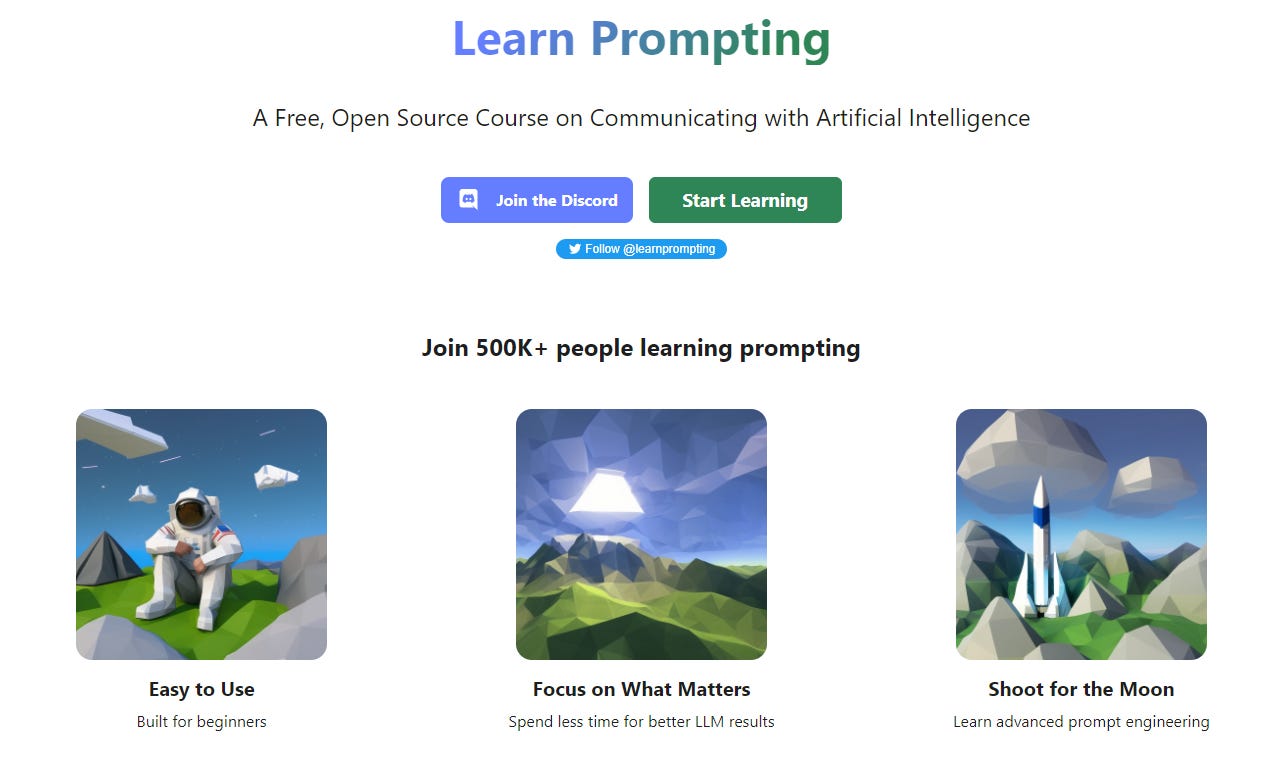
Love this post, Daniel. I've come across plenty of the same articles you mention here and it'd actually be quite exhausting trying to keep on top of all the 'best prompts' put out there. In fact, it's probably quicker — and far more valuable — just to educate/experiment yourself with the tools out there (just like you said, really).
ChatGPT and Bing chat can both help one craft prompts for themselves and other AI as well--how meta! 😁 Great point about the term “prompt engineering”. And while I do think that doing it well is a skill, one thing I notice about that choice of words is it that it suggests prompting is primarily a computer science skill. It certainly doesn’t hurt to have computer science knowledge to prompt well, but it also helps to have critical thinking and writing skills. It is, after all, a language program!